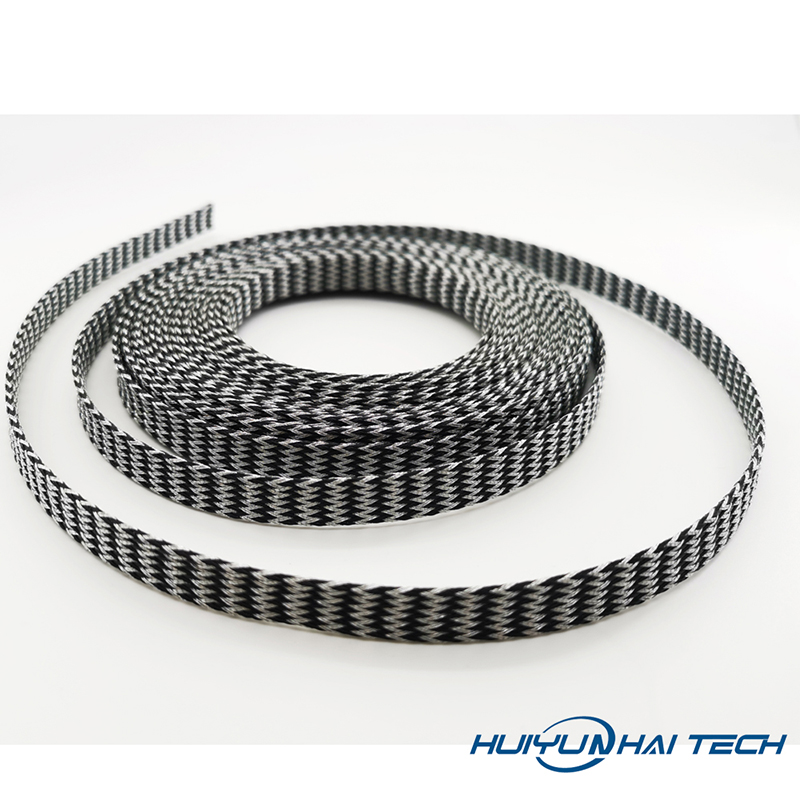1. Chemical Compatibility When selecting PP Velcro Braided Sleeve for pumping corrosive fluids, the key is to choose the correct Cable Sleeve material. Choosing the wrong cable gland can lead to dangerous situations, possibly destroying equipment and endangering personal safety. Consult pump and cable gland manufacturers for chemical compatibility tables for each application. Test the pump before using new or unlabeled levels of chemicals. Immerse a short length of cable gland in the fluid. Check for changes in cable gland size, color, weight and strength. If possible, test the cable glands in the pump before stretching them for use. The bending of the Cable Sleeve during extrusion will knead chemicals into the pipe wall and accelerate the aging and disintegration of the pipe.

2. Non-contamination In many applications such as laboratory research, pharmaceuticals, and biotechnology product production, it is critical to isolate fluids. A large number of studies have demonstrated that
Pp Velcro Braided Sleeve and silicon-based materials will not chemically react with various biological materials. There are other types of materials that also have this property and can meet USP Class VI requirements. Some pumps have cable gland assemblies made of inert PTFE tubing.
After running for a long time, some particles in the tubing will separate out and fall into the fluid. Experts call this the "peeling phenomenon." In some applications, such particles can be observed with the naked eye. To minimize stripping, replace tubing more frequently.
3. The ability of different pipes to withstand repeated rolling by rollers is also different. In general, the combination of a specific cable gland size, cable gland material, pump head type, and operating speed determines the life of the cable gland. Cable Sleeve service life, or flexural yield limit in pumps, is the primary consideration before putting it into a new application. With thermoplastic elastomers used in systems today, it is not uncommon for cable glands to have an operating life in excess of 500 hours. In a specific application, the performance of the pump is very stable. Choosing a pipe with greater bending resistance, using a thicker pipe wall or choosing a larger pump and using a lower operating speed can maximize the use of the Cable Sleeve.
4. Clarity For some applications, it is very valuable to be able to observe the movement of the fluid through the pipeline in order to clearly understand the working process of the pump or dry running. On the other hand, opaque tubing is beneficial for some photosensitive fluids.
5. Pipe wall hardness is critical in determining the pumpability of a particular pipe. If the Cable Sleeve is too soft, it will be easily damaged; if the Cable Sleeve is too hard, the pump will not work. A hardness tester can be used to determine the physical properties of a particular pipe.
6. Fluid pressure typically limits the ability of the Cable Sleeve to convey fluid under pressure. Most PP Velcro
Braided Sleeve come with unsupported piping. The pressure limit of this type of Cable Sleeve is 2 to 3Pa. Some of the larger pumps on the market use supported piping. Cable Sleeves immersed in lubricating fluid can withstand pressures up to 15 to 20Pa.



